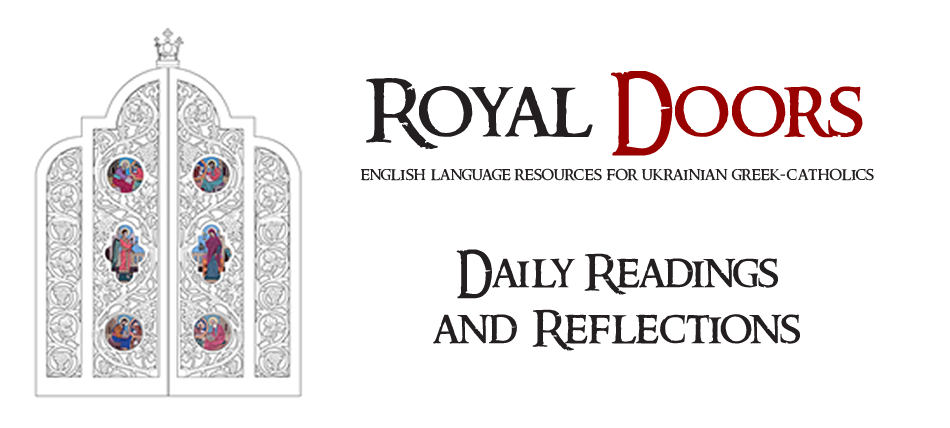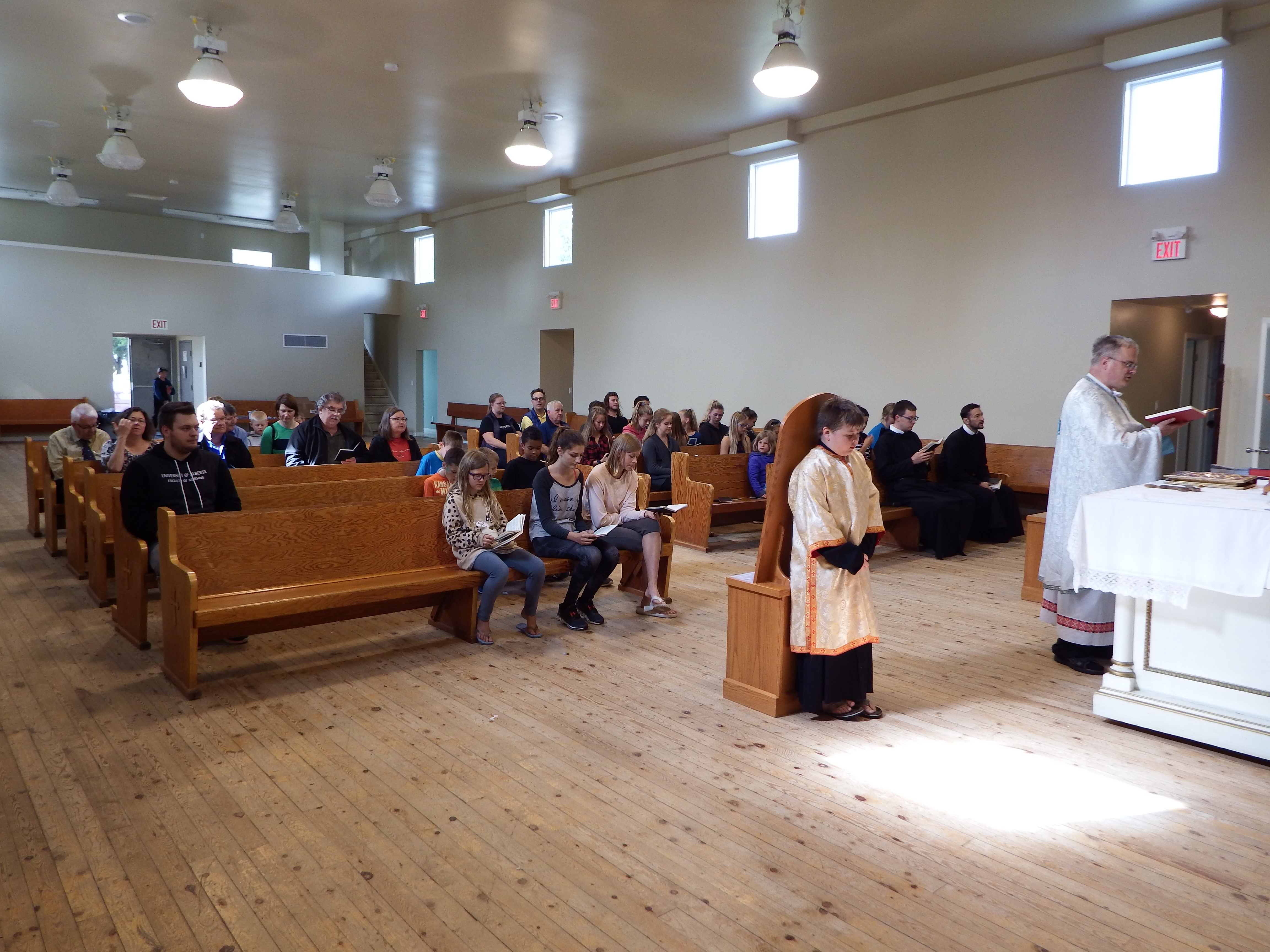by Brent Kostyniuk
Thank goodness they still exist. Many decades ago, parish operated summer camps were a common feature on the prairies, however few remain. A remarkable exception is Camp St. Basil located about 45 miles south west of Edmonton near Mulhurst Bay on Pigeon Lake.
The spark for Camp St. Basil came in 1950 when it was decided an overnight camp in the country would provide a highly desirable opportunity to educate Ukrainian Catholic youth in the Catholic faith and Ukrainian culture. It would have greater impact on them than the summer day camps for boys and girls operating in Edmonton at the time. Land was purchased and after five years of planning and construction, the camp opened in July 1955. In the early years, well over two hundred children could be expected to attend the month long camp. As well as those children coming from Edmonton, chartered school buses would bring many from rural parishes.
In addition to education in faith and culture, founders of the camp saw it as an opportunity for leadership training, particularly for young people in their teens and early twenties. Over the years, emphasis shifted towards education. Later, simply providing campers with an enjoyable experience became the priority. More recently, it has re-focused on educating them in the Faith. Through all this, one thing has remained constant—the overnight camping experience provides a much greater bonding experience between campers than day camps.
This past July, over 50 children took part in Camp St. Basil. While the camp lasts only two weeks, the facility is booked throughout the summer by other organizations, seeking to provide a similar experience for their young people. Several years ago a new combined kitchen, dining hall and gathering place was completed at a cost of $1.6 million, showing great faith in the future of Camp St. Basil. Plans are in the works for new dormitory buildings as well.
A typical day at Camp St. Basil begins with morning exercise before breakfast. After dorm clean up, there are Ukrainian language and religion classes, followed by Divine Liturgy. In the afternoon a rotation of crafts, Ukrainian dance, and sporting activities keeps everyone busy. A traditional highlight is the mid-afternoon canteen break. After supper an evening activity rounds off the day. Campfires and fireworks are special treats.
Fr. Ireneus Prystajecky, OSBM is the current Camp Director. He reflects on how the nature of the camp experience has changed over the years. “Today, it seems, that children are not so much sent to camp by their parents, as they themselves choose to come to camp. Along with a much greater range of summer activities and day camps available to them, and declining attendance of youth at Church in general, one may question the relevance of having a traditional overnight church summer camp.
“Church summer camps, however, retain their relevance today to give children an opportunity to teach them aspects of the Faith not covered in depth in Catholic schools, as well as teaching the faith to children who have no other catechetical exposure. Summer camps also remain relevant as opportunities for children to unplug from the omnipresent social media universe and engage in real social interaction; they learn how to stand on their own two feet and to literally live together. Living together in close quarters for two weeks gives younger children opportunities to mature and lessen their dependence on their parents, and older children opportunities to develop the social skills so helpful in their future lives, both socially and also at work.
“Camp St. Basil also immerses children in the practice of the faith, having Divine Liturgy every day, confessions once a week, as well as smaller prayers several times a day. The children and counsellors are also admonished to treat each other well. The children and counsellors are instructed in aspects of moral behaviour as needed.”
The camp has retained an aspect of leadership training in the development of counsellors who lead and care for the children. The majority of counsellors are former campers who enjoyed their camp experience so much they desire to return as counsellors. Prior to camp they are given first-aid training and at least one orientation session. Throughout the two weeks, their work performance and behaviour is monitored. Basilian brothers training for priesthood are also involved in the camp, teaching catechism and Ukrainian classes, as well as interacting with the children in some of their activities. It provides the brothers with an opportunity for pastoral practice and leadership development.
Recently, there has been a greater diversity in the children attending camp. Many are neither Ukrainian nor Catholic. Some are quite mature, while for others it is their first experience of independence. All of this challenges the counsellors to perform at a high level. In response, the mix of counsellors has also started to become more diverse than it was in the past.
Finally, Fr. Ireneus has no doubts about the value of Camp. St. Basil. “Jesus came so that all may be one. Residential overnight summer camps give children and youth an unparalleled opportunity for children and youth to put Jesus’ desire into practice. They learn how to live together. The children are formed in the faith, while the counsellors learn how to lead and care for children.”
Perhaps the entire experience is best captured by the Camp St. Basil motto—Strength by love, friendship, and faith.
This piece first appeared in The Prairie Messenger. Reprinted with permission.

